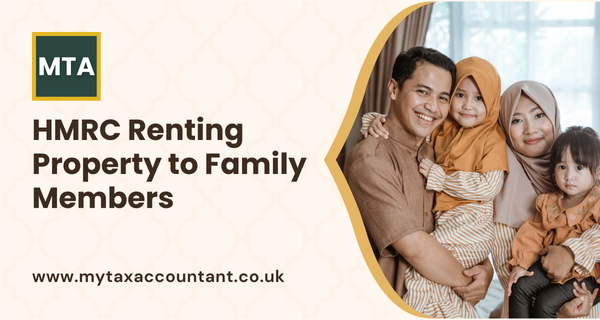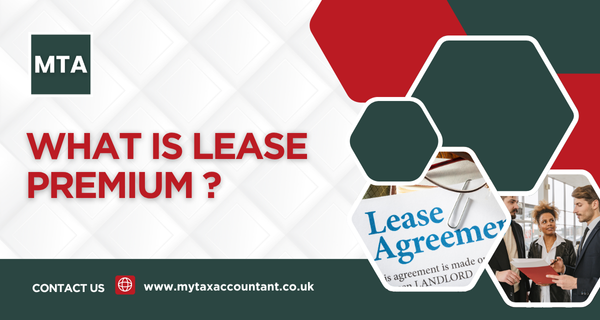How to Do Self-Assessment Tax for Landlords
- MAZ

- Jul 7, 2023
- 6 min read
Navigating the world of taxes can be a daunting task, especially for landlords who have to deal with rental income. This guide will walk you through the process of completing your Self-Assessment tax return, with the help of a Landlord Tax Accountant if necessary.

Registering for Self-Assessment
If you make more than £1,000 in rental income, you must complete a Self-Assessment tax return. This process involves providing information about your income and expenses to HMRC, which they use to calculate your tax. If you've never sent a tax return before, you'll need to register for Self-Assessment by the 5th of October in your second tax year of being a landlord. This can be done online through the Government Gateway. Once registered, you'll receive a Unique Taxpayer Reference (UTR) number, which you'll need to send a tax return.
Completing and Submitting Your Self-Assessment Tax Return
The Self-Assessment form only requires you to complete the sections relevant to you. To record UK property income, you'll need to use the SA105 form, which must be completed and filed alongside your SA100 (main Self-Assessment tax return) before the deadlines. Depending on other forms of income you receive, you may also need to fill in supplementary forms. If you're unsure about what sections are relevant to you, a Landlord Tax Accountant can help simplify the process.
Deadlines and Penalties
The deadline for submitting your Self-Assessment tax return is midnight on the 31st of October for paper tax returns and 31st of January for online tax returns. This is also the deadline for paying any tax you owe. Failure to meet these deadlines can result in penalties, so it's crucial to stay on top of these dates.
Claiming Allowable Expenses
As a landlord, there are several business expenses you can claim to reduce your tax bill. These include property repair and maintenance costs, running costs, accounting and management fees, costs of services, insurance, replacement of domestic items, mortgage interest, and other finance charges. A Landlord Tax Accountant can help you identify all the expenses you can claim.
Record-Keeping
Keeping accurate records of your expenses and rent received from tenants is crucial for calculating the profit you'll pay tax on. These records include receipts, invoices, bank statements, rent books, and mileage logs. You must keep these records for at least five years following the 31st January of the tax year in which you've used them to file your Self-Assessment tax return.
Paying Your Landlord Tax
Once you've filed your tax return, HMRC will calculate what you owe and send you a tax bill. The fastest ways to pay your tax bill are online or telephone banking, Chaps, debit or corporate credit card online, or at your bank or building society. If your bill is over £1,000, you'll also need to make a payment on account, which is an advance payment towards your next Self-Assessment bill.
Navigating the tax landscape can be complex, but with the right information and possibly the help of a Landlord Tax Accountant, you can ensure you're meeting all your tax obligations as a landlord.
How Do You Calculate Rental Income for Paying Taxes?
Understanding how to calculate rental income for tax purposes is crucial for landlords. This process involves determining your net rental profit, identifying allowable expenses, and understanding how to calculate tax on your rental income.
Determining Your Net Rental Profit
To calculate your net rental profit, you need to:
Add together your rental income from all your properties. Note that rental income on foreign property needs to be declared separately as foreign income.
Add together your allowable expenses from all your properties.
Subtract your allowable expenses from your rental income.
Your rental income consists of the rent you receive from your tenants plus any funds you receive for covering various service charges. These could include rent for the letting of your property, permits associated with your property, fixed service charges, variable service charges, 'sinking' funds, easements, sums received for the use of furniture, reverse premiums and deemed premiums, and property insurance.
Identifying Allowable Expenses
You can offset some of your rental property’s costs by claiming any expenses you incur wholly and exclusively for your rental property. If you incur an expense that is only partially for your rental property, but you are able to calculate a definite proportion used wholly and exclusively for your property business, you are able to deduct that proportion.
Calculating Tax on Rental Income
To calculate how much tax, you owe on your rental income, follow these steps:
First, calculate your net profit or loss: Rental Income - Allowable Expenses = Rental Profit
Second, deduct your personal allowance: Rental Profit – Personal Allowance = Total Taxable Rental Profit
Finally, calculate your tax rate for the current year: Total Taxable Rental Profit x Income Tax Rate (%) = Tax Owed on Rental Profit
For example, if it is the 2022-2023 tax year, and you are a basic rate taxpayer who has made £15,570 in rental income with £2,000 in allowable expenses, you would calculate your tax as follows:
£15,570 rental income - £2,000 allowable expenses = £13,570 rental profit £13,570 rental profit - £12,570 personal allowance = £1000 total taxable rental profit £1000 total taxable rental profit x 20% basic rate income tax = £200 tax due
Therefore, you would owe £200 on your rental profit for the 2022-2023 financial year.

Why Do You Need a Landlord Tax Accountant to Pay Landlord Tax?
Navigating the complex landscape of taxation can be a daunting task, especially for landlords who have multiple properties and various income streams. This is where the expertise of a Landlord Tax Accountant comes into play. Here are some compelling reasons why you might need a Landlord Tax Accountant to handle your landlord tax in the UK.
Understanding the Complexities of Tax Legislation
Tax laws in the UK are intricate and constantly evolving. A Landlord Tax Accountant stays abreast of these changes and understands how they apply to landlords. They can provide advice on how new tax laws might affect your rental income and expenses, ensuring you remain compliant while optimizing your tax position.
Maximizing Allowable Deductions
One of the key benefits of hiring a Landlord Tax Accountant is their knowledge of allowable deductions. From mortgage interest to property repairs and maintenance costs, there are numerous expenses that can be deducted from your rental income to reduce your tax liability. A Landlord Tax Accountant can help identify all the expenses you can claim, ensuring you don't pay more tax than necessary.
Handling Multiple Properties
If you own multiple rental properties, managing your tax affairs can become even more complex. Each property may have different rental incomes, expenses, and tax implications. A Landlord Tax Accountant can help consolidate all this information, ensuring accurate reporting and efficient tax planning.
Dealing with HMRC
Interacting with HM Revenue and Customs (HMRC) can be challenging and time-consuming. Whether it's filing your Self-Assessment tax return, responding to queries, or dealing with tax investigations, a Landlord Tax Accountant can handle these interactions on your behalf. They can ensure that all communications and submissions to HMRC are accurate, timely, and in line with the latest tax laws.
Saving Time and Reducing Stress
Managing your tax affairs can be time-consuming, particularly when you're also dealing with the day-to-day responsibilities of being a landlord. By outsourcing your tax management to a Landlord Tax Accountant, you can save valuable time and reduce the stress associated with tax compliance. This allows you to focus on what you do best - managing your properties and providing a great service to your tenants.
Providing Long-Term Tax Planning
A Landlord Tax Accountant can do more than just handle your annual tax return. They can provide strategic advice and long-term tax planning to help you grow your property portfolio in the most tax-efficient way. Whether it's advice on buying or selling properties, structuring your property holdings, or planning for inheritance tax, a Landlord Tax Accountant can provide valuable insights to support your long-term goals.
Ensuring Accuracy
Mistakes in your tax return can lead to penalties and interest charges from HMRC. A Landlord Tax Accountant can help ensure accuracy in your tax reporting, reducing the risk of errors and the potential costs associated with them.
Conclusion
In conclusion, a Landlord Tax Accountant is not just a luxury but a necessity for landlords in the UK. Their expertise in tax legislation, ability to maximize deductions, and skill in dealing with HMRC can save you time, reduce stress, and potentially save you money. By providing long-term tax planning and ensuring accuracy in your tax affairs, a Landlord Tax Accountant can be a valuable partner in managing your property portfolio.




Comments